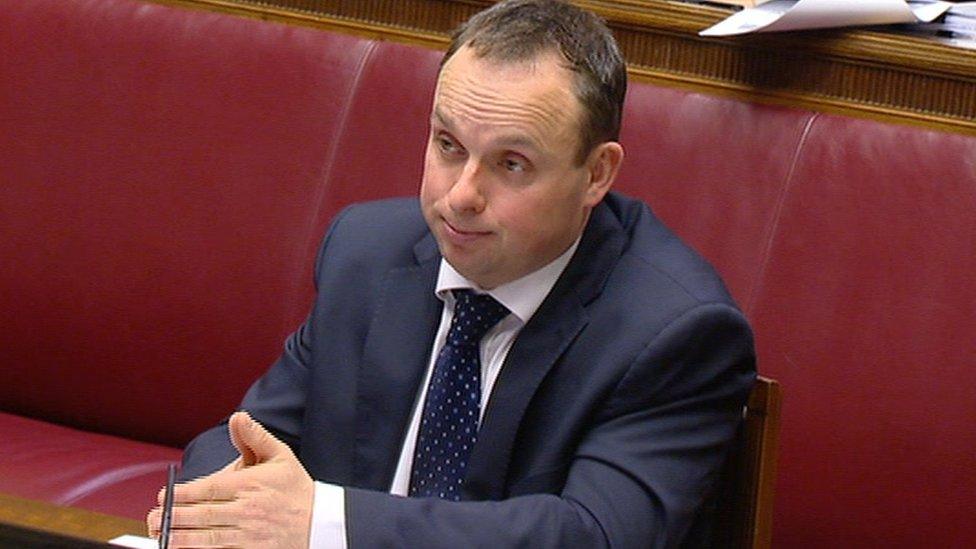NI renewable sector 'dead' due to green scheme - RHI inquiry
- Published
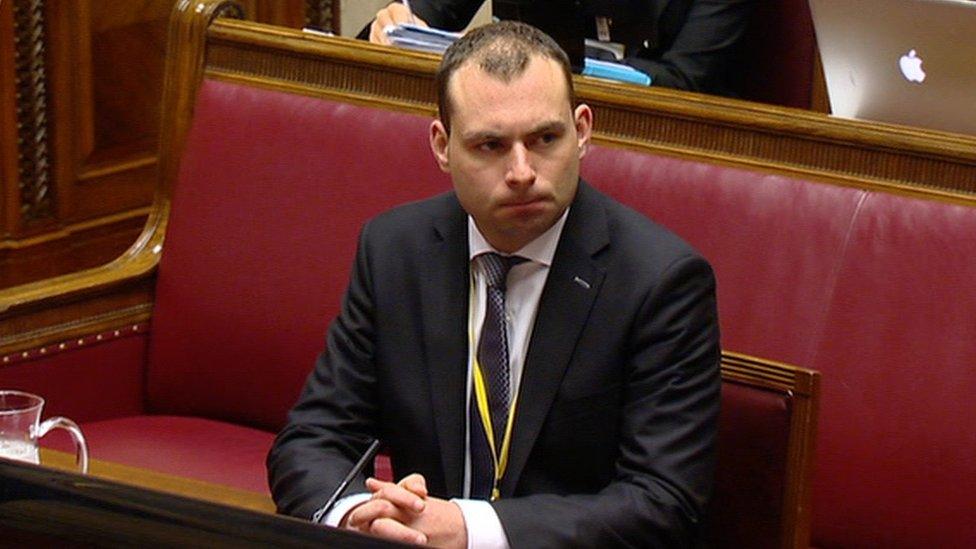
Alan Hegan told the RHI inquiry he voiced frustration "in several directions" that the scheme was not designed properly
The fallout of Stormont's flawed green energy scheme has "destroyed" the renewable heat industry in Northern Ireland, an inquiry has heard.
The claim was made by Alan Hegan, who runs a County Tyrone boiler installation firm.
He appeared at the inquiry into the Renewable Heat Incentive (RHI) scheme.
It was set up in 2012 to encourage businesses to uptake eco-friendly heat systems, but overgenerous subsidies left NI taxpayers with a £490m bill.
Its failings led to the establishment of a public inquiry in January 2017.
On Tuesday, Mr Hegan, who is a director at Hegan Biomass Ltd, a renewable heating systems firm based in Dungannon, criticised the way in which the NI scheme had been designed.
It made more financial sense for firms to install multiple 99kW boilers, which ran on wood pellets, in order to be eligible for the most lucrative subsidy, as opposed to one larger boiler, which would have been more energy efficient but would not have provided as great a rate of return.
Mr Hegan's firm installed biomass boilers for businesses who were claimants on the RHI scheme.
In summer 2015, officials in Stormont's enterprise department - which set the scheme up - realised the extent of budgetary problems and started looking at plans to introduce cost controls.
'Totally shambolic'
The scheme had to be shut down entirely the following February.
Mr Hegan told the inquiry that as a result of everything that happened, he believes the renewable heat industry in Northern Ireland is "dead".
"With the amount of bad press that has surrounded biomass and perhaps renewables in general, it's arguable what level of incentive would now be required to bring someone into it," he said.
He added that firms had gone from a position of having a "grandfathered" 20-year tariff, to one where their cash flows had been "shattered" 14 months into the term by the cost control changes imposed.
He said the business community's confidence in the economy department had been "absolutely eroded", given how the scheme had been shut down.
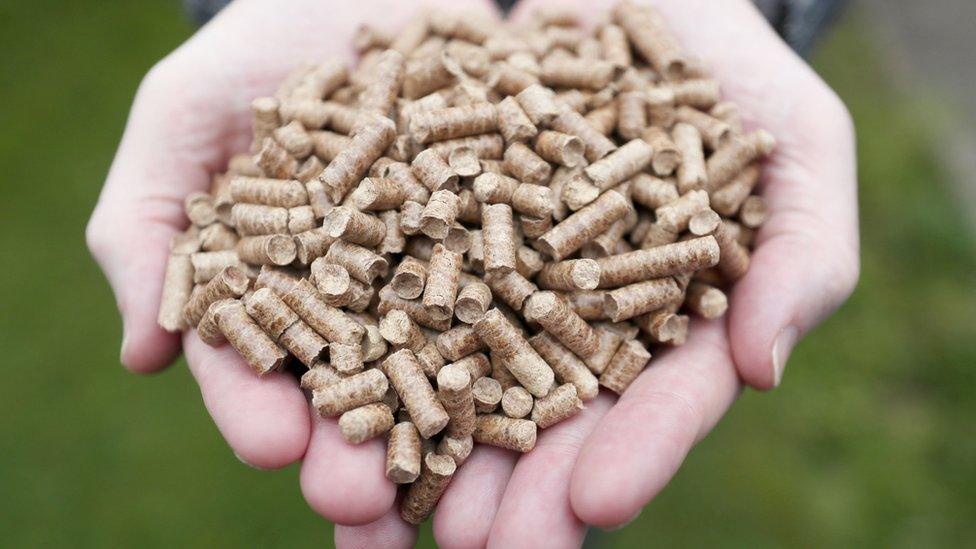
RHI claimants could effectively earn a profit by burning wood pellets in their boilers
"It's totally shambolic, that's my view, the industry is destroyed," Mr Hegan said.
"Whatever opinion they (businesses) had of the department, it's certainly a lower opinion now."
Mr Hegan told the inquiry his business has "all but collapsed", and he expects that he might have to close it within nine months.
"I really hope I'm not sitting here in five years' time again at another inquiry, when we're trying to assess why renewable heat has absolutely collapsed in Northern Ireland," he added.
Earlier on Tuesday, Mr Hegan accused officials in the enterprise department of knowing there were critical flaws in the set up of RHI, but "nobody cared".
'Glittering packaging'
"The economics... didn't work for anything above 99kW in Northern Ireland... the mathematics didn't work and no business therefore invested in larger boilers," said Mr Hegan.
"I believe the incentive wasn't enough to justify a larger boiler."
He said biomass was not normally a financially attractive option for firms to switch to, but the nature of the RHI scheme was such that it provided a very generous incentive to get companies to do just that.
"Cars are sold on miles per gallon, toys are sold on glitter and packaging, this was an incentive scheme. That would have been the main point a business owner would have considered," he said.
Panel member Dame Una O'Brien said it seemed the non-domestic RHI scheme was "covered in glittering packaging" and that it was a "no-brainer" for businesses to install more smaller boilers in order to generate a bigger payback.
Inquiry chair Sir Patrick Coghlin asked if it seemed obvious to Mr Hegan that the scheme was designed so that businesses would opt for the smaller boilers, why did it take so long for the creators of the scheme to figure it out?
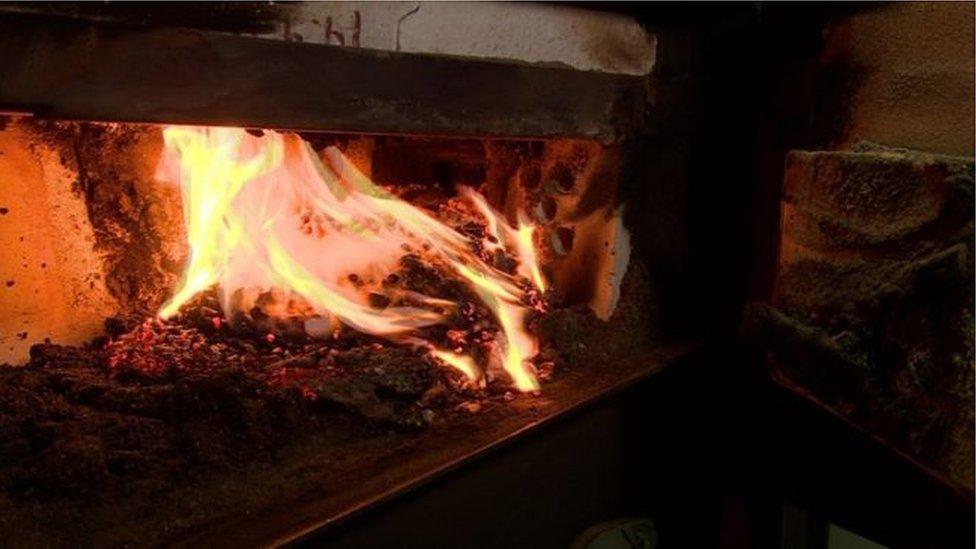
The RHI scheme was established to encourage uptake of eco-friendly heat systems over the use of fossil fuels, but there were loopholes in its design
Stormont officials have said they only realised the scale of the problem several years after the scheme became operational, and cost controls ultimately were not introduced until November 2015.
Mr Hegan replied: "I believe they knew."
Sir Patrick asked Mr Hegan what he felt a possible motive could have been, to have a scheme that offered a "profit rather than just an incentive".
Mr Hegan said he believed the plan was to "rapidly encourage" people to sign up in order to help achieve a key target for increasing renewable heat use in Northern Ireland by 2020.
'Nobody cared'
"As time went on, that level should've gone down," he said, adding that he "wouldn't have designed the scheme the way it was designed".
A similar scheme in Great Britain did have tariffs built in, so that it could not be manipulated for profit.
Mr Hegan said he raised his concerns with the enterprise department, which designed the scheme, but added: "Anything, any time I saw it, we would have objected. Nobody wanted to hear it, nobody cared, should energy efficiency have been built in, of course."
The enterprise department has said there was a "conspiracy of silence" from some businesses and others within the renewables industry, who were aware of the problems but did not raise them with officials.
Mr Hegan said he had "voiced frustration" in several directions, but that he felt RHI was a government policy and the incentive was the main driver for pushing the scheme forward.
"I was under the illusion there were people a lot more qualified and intelligent than I was making these decisions," he said.
"We weren't there to set policy or argue with the department we were supposed to be trying to work with."
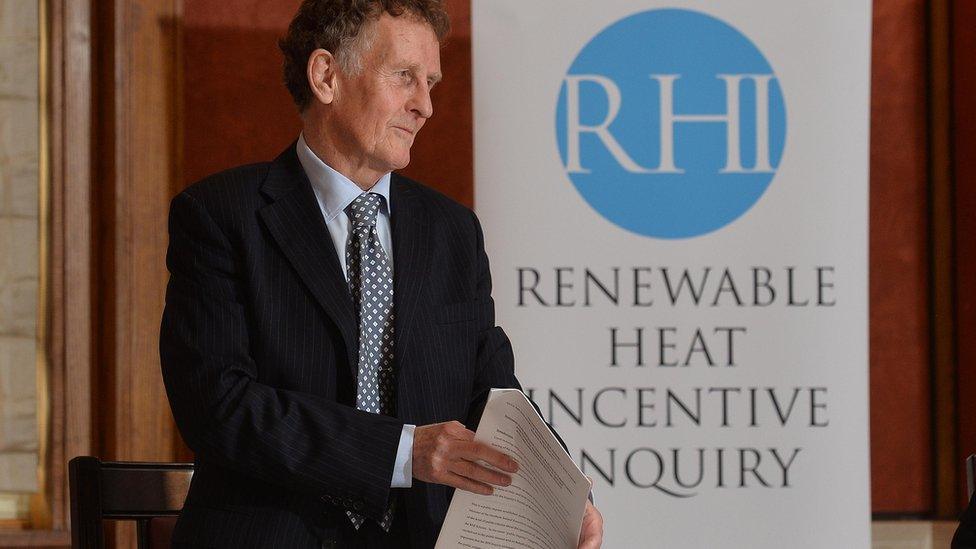
The RHI public inquiry is being chaired by Sir Patrick Coghlin and has heard 91 days of evidence so far
Mr Hegan also told the inquiry he was so busy during summer 2015 that he postponed a family holiday.
He said details had begun to spread in early July that tariff changes were coming in order to reduce the lucrative subsidy claimants could earn.
Mr Hegan said the entire industry was working at "full pelt".
Officials in the enterprise department were telling installers about the changes and were not asking them to keep it confidential.
He said that within the space of 24 hours, the information had been shared within the biomass installation industry, which comprised about 15 firms.
He said he was telling the department they were "massively, massively busy" but there was no reaction.
Mr Hegan said from early July, orders started to flow in as word of the impending tariff changes spread.
'Busiest ever'
He postponed a family holiday in early July as the business began to take between 50 to 100 calls a day trying to place orders, and his email inbox was so full of unanswered messages that it stopped accepting mail.
"I was the busiest I believe I have ever been in my life," he added.
He said the sectors he served were predominately agricultural, including poultry farms, dairy farms, grain drying and pig farms.
He also installed boilers in the hospitality and engineering industries.
Later, the RHI inquiry was told that a person the panel is interested in taking evidence from is on a round-the-world trip and cannot be contacted.
'Travelling' witness
Fergal Hegarty was the business development manager at Alternative Heat, a company that supplied boilers to installers.
The firm's director, Connel McMullan, gave evidence to the inquiry on Tuesday.
It has heard that Mr Hegarty was involved in much of the contact with officials in the enterprise department about upcoming changes to subsidies in autumn 2015.
He also co-ordinated efforts by the companies to which Alternative Heat supplied, to push for a delay in the introduction of a tiered tariff in that period.
Mr McMullan said Mr Hegarty was travelling around the world and is currently in Australia, but is expected to be back at the end of 2018 or early 2019.
He was asked whether the trip was linked to the inquiry's interest in taking evidence from him.
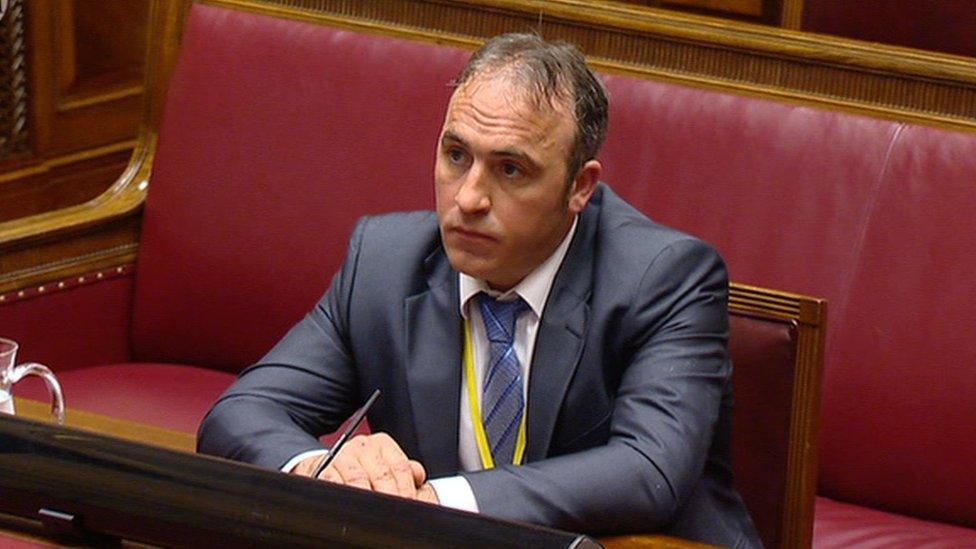
Connel McMullan is the owner of a renewable heat company that supplied RHI boilers to claimants
Mr McMullan said he did not believe so.
He said while Mr Hegarty's job was being held open for him, Alternative Heat was not paying him wages or expenses while he was away.
Mr Scoffield said the panel was interested in hearing from Mr Hegarty, but had so far been unable to contact him to even get a witness statement.
Mr McMullan also told the inquiry he did not believe the the lucrative subsidies for small boilers on the RHI scheme was a mistake by those who designed it.
He said because of the similar scheme in Great Britain to which Stormont officials could refer, he thought they knew what they were doing.
"I thought it was a structured approach to a scheme that was thought out," he added.
'Too good to be true'
Mr McMullan said he believed the RHI subsidies would be cut over time, after an initial period of the overgenerous offer to "incentivise uptake" of renewable heat.
Sir Patrick said there must have been a "common-sense view in the industry that this is too good to be true, let's get everyone in as soon as we can".
Mr McMullan replied: "Without a doubt, the scheme was very lucrative, if you had a demand for heat why would you overlook it?"
He said when demand for boiler installations began to pick up in late 2014, he expected the department would then bring in tiered tariffs to cap the level of subsidy, but it did not.
The inquiry will hear from a number of witnesses this week, including the former chair of Stormont's enterprise committee, the SDLP assembly member Patsy McGlone.
- Published25 September 2018
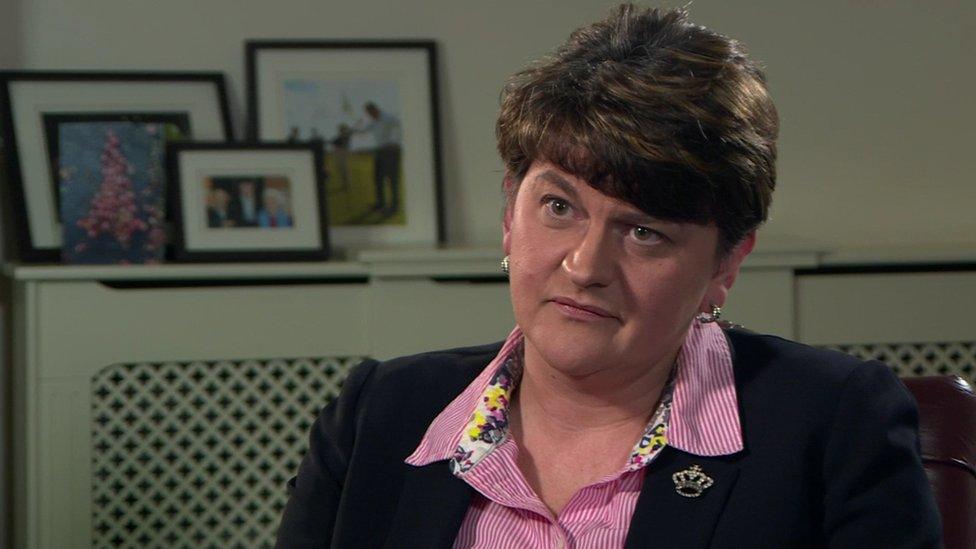
- Published21 September 2018
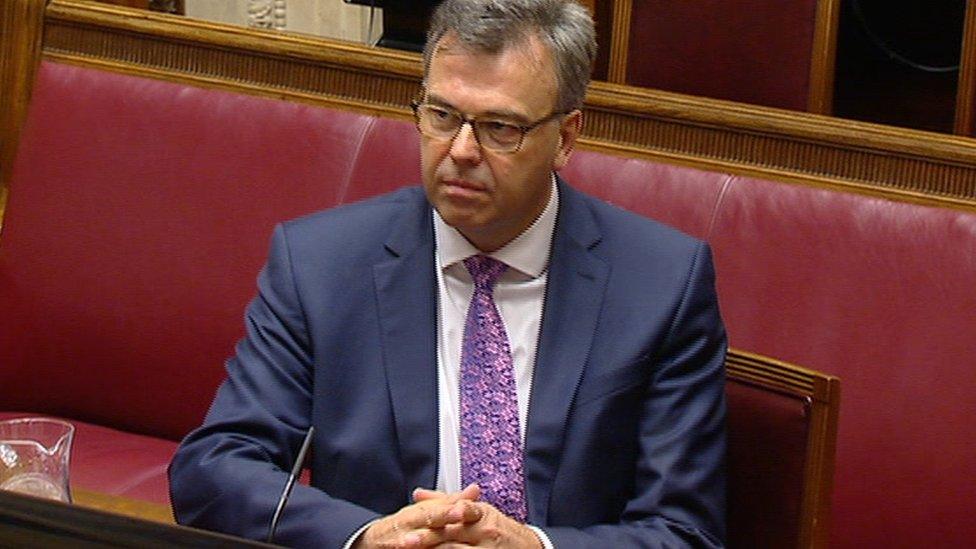
- Published20 September 2018
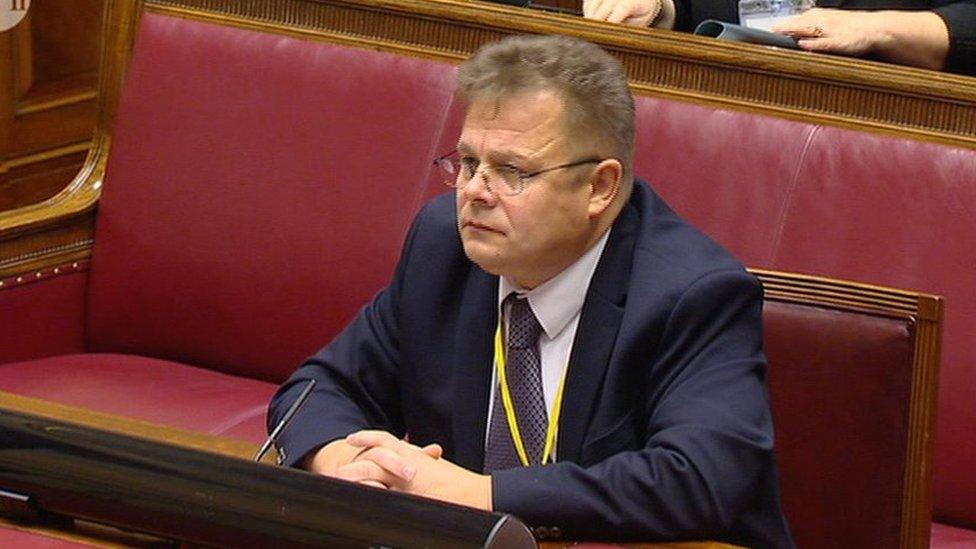
- Published14 September 2018
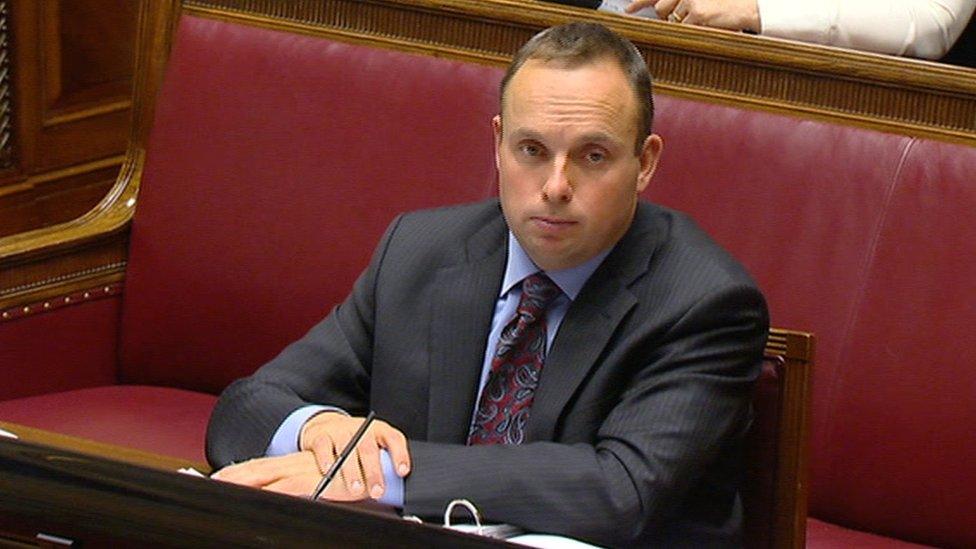
- Published13 September 2018
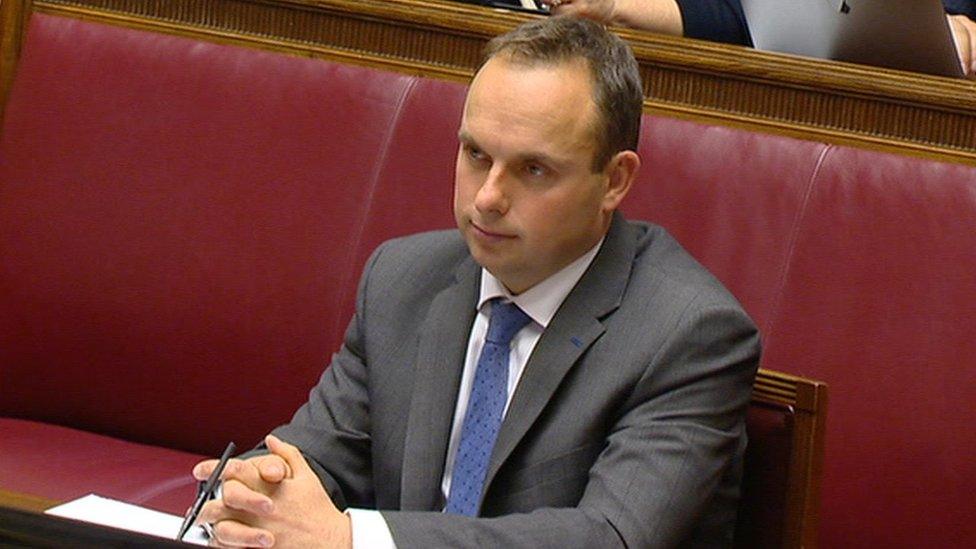
- Published12 September 2018
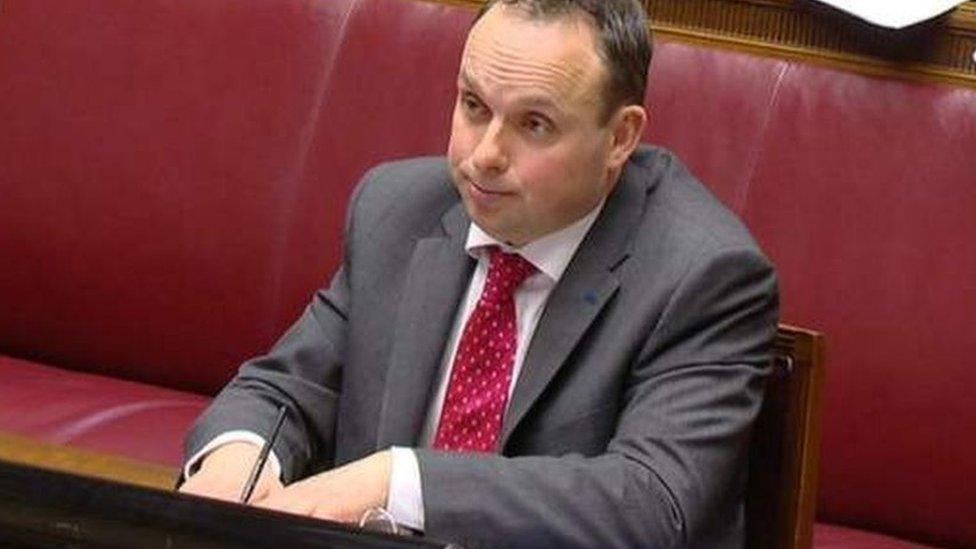
- Published11 April 2018
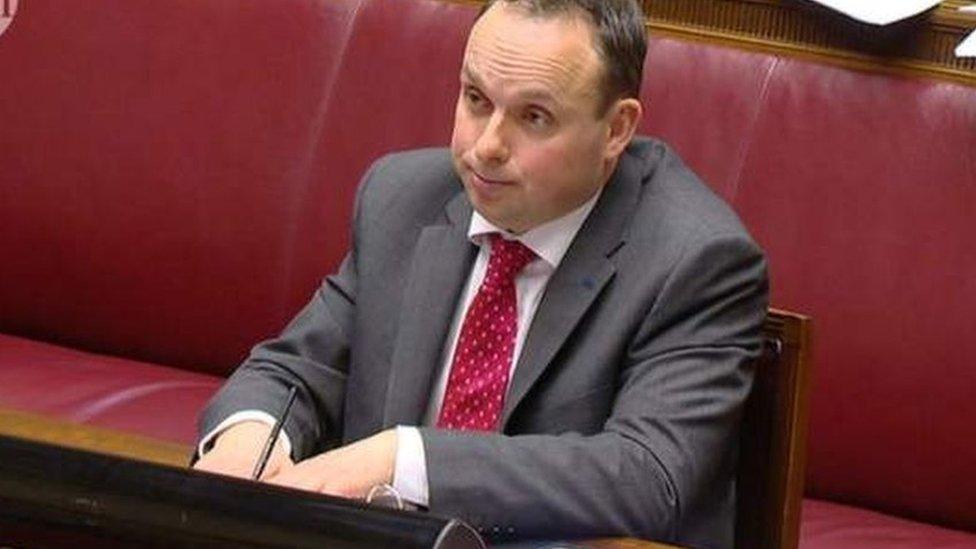
- Published11 September 2018
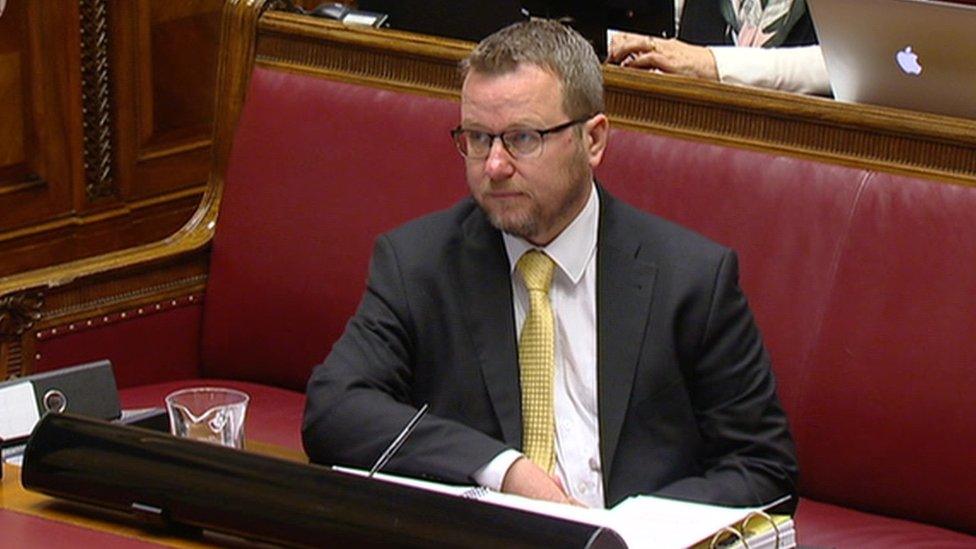
- Published11 September 2018
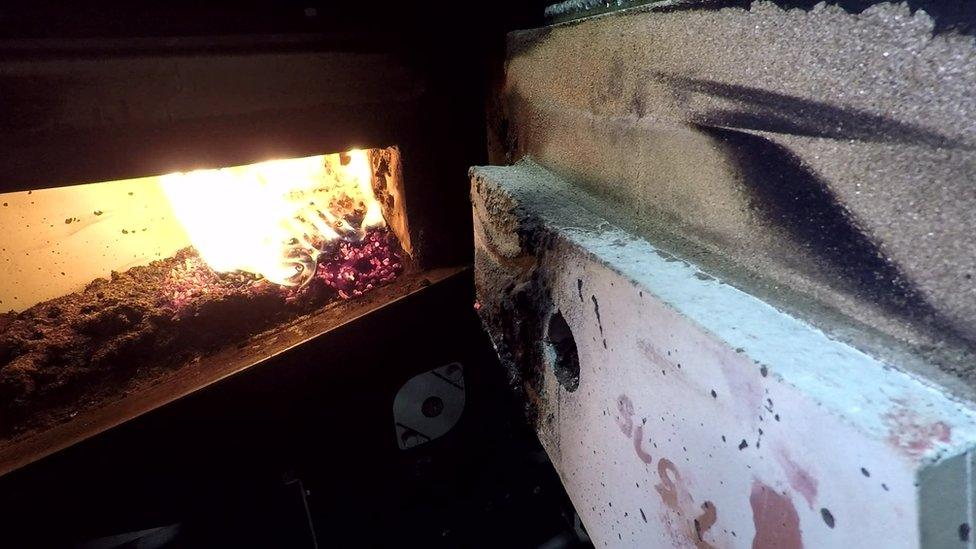
- Published7 September 2018
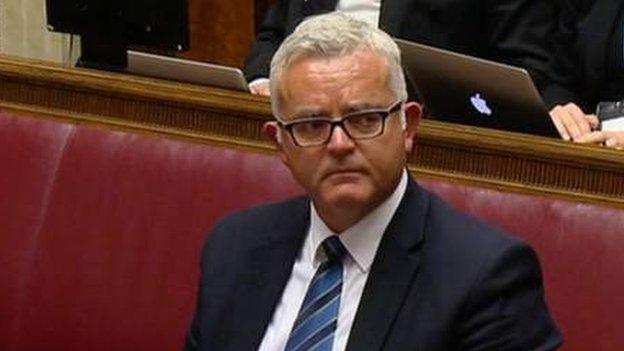
- Published7 September 2018
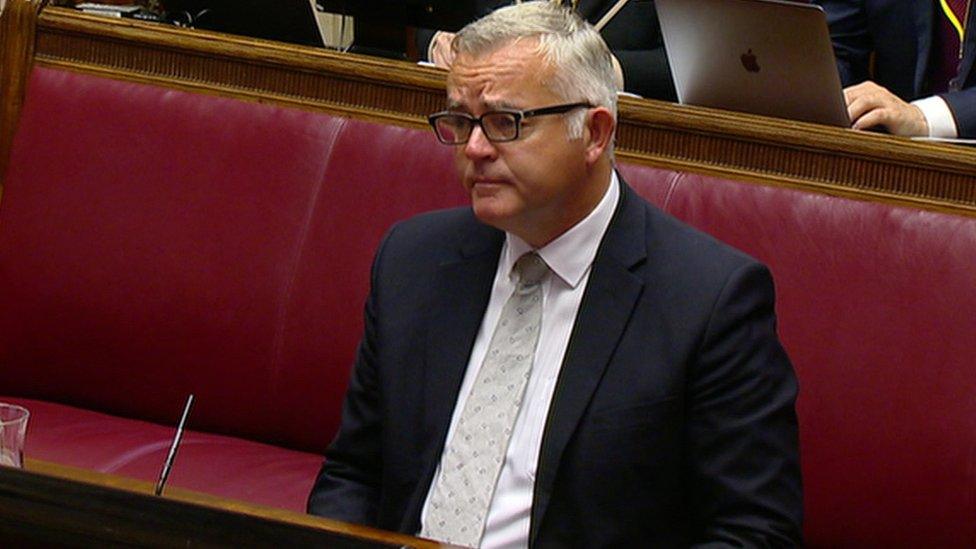
- Published5 September 2018
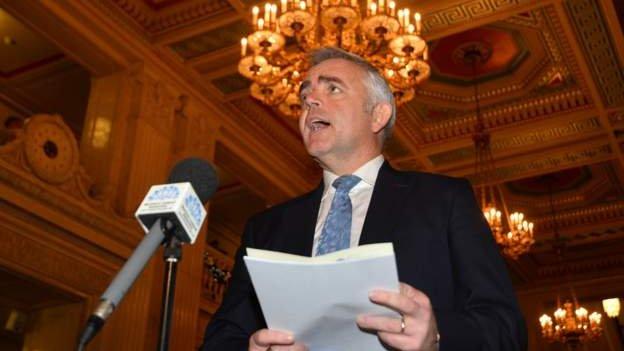
- Published5 September 2018
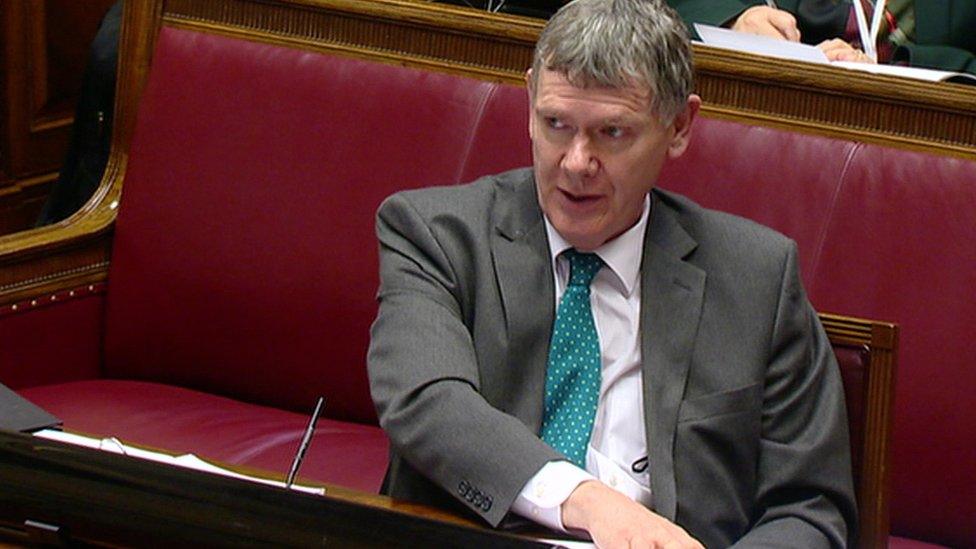
- Published5 September 2018
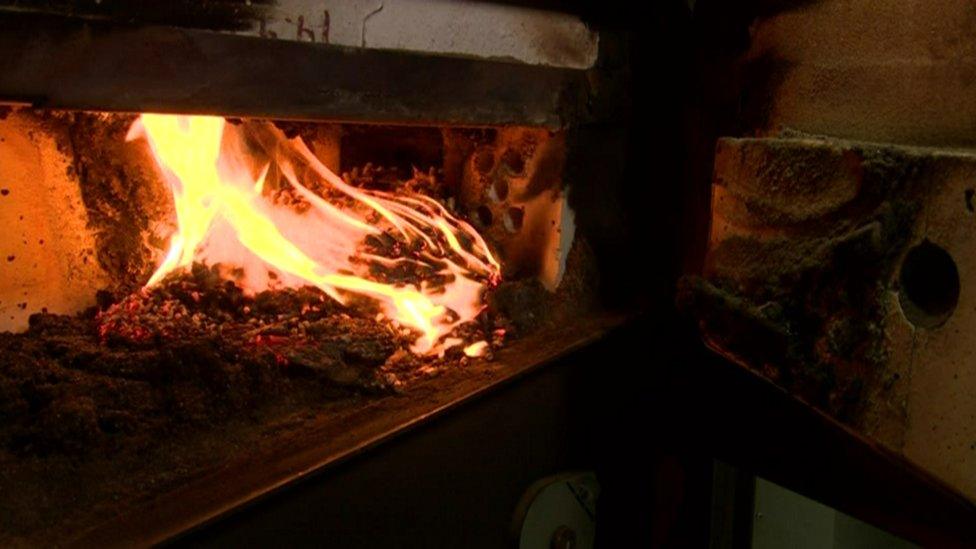
- Published13 March 2020
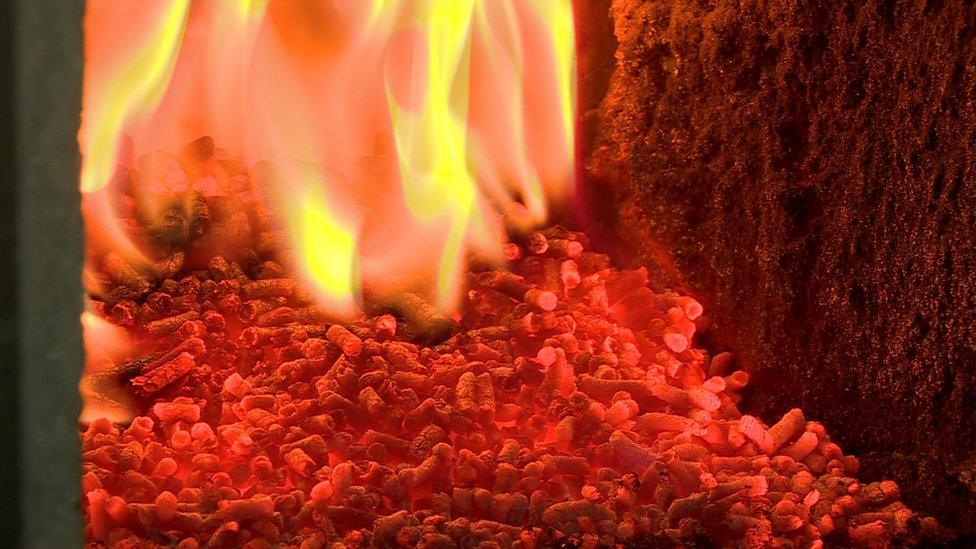
- Published4 September 2018
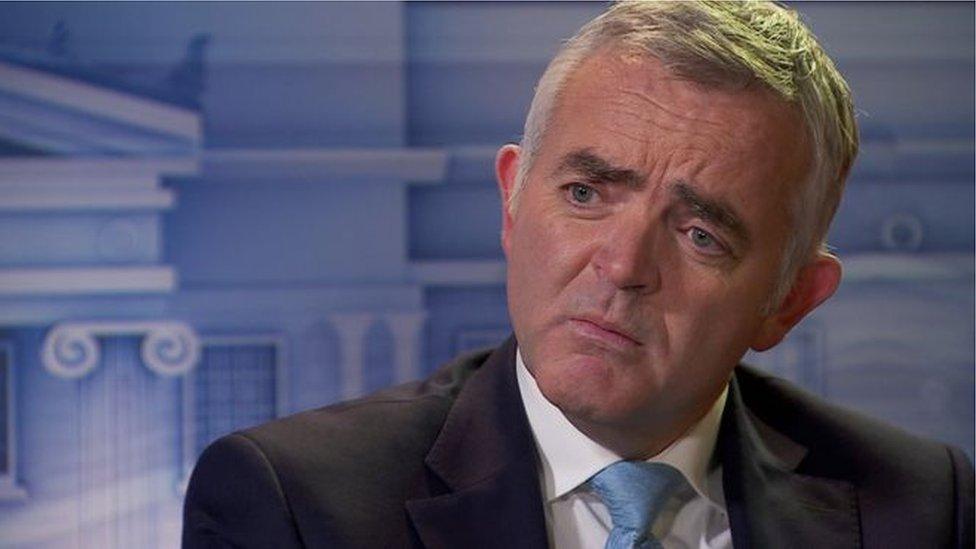
- Published17 April 2018
